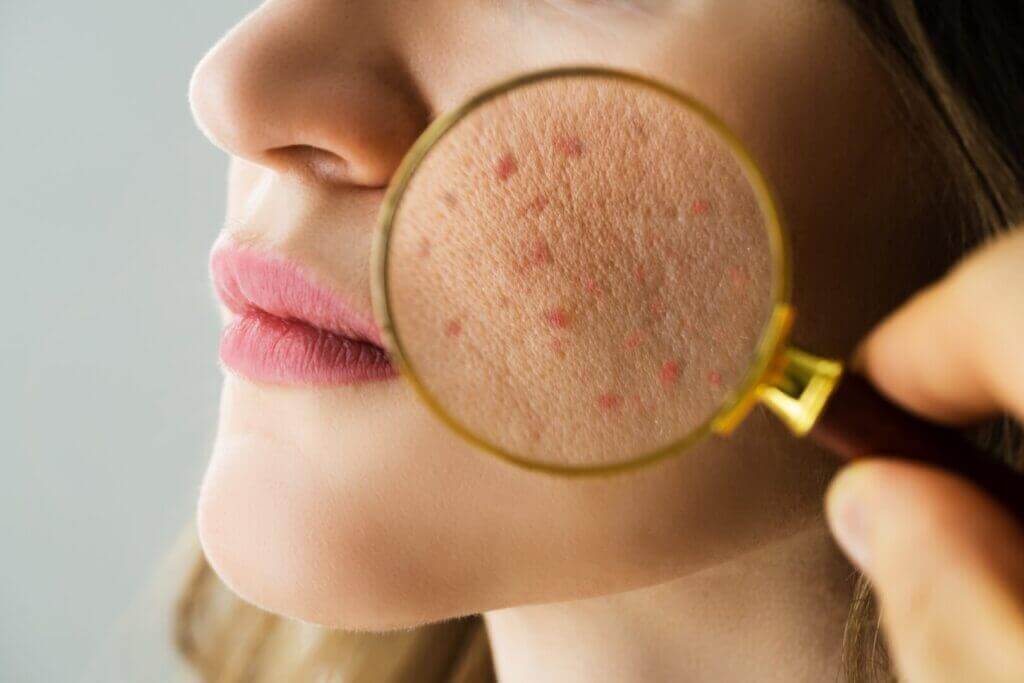
In the world of skincare, we often focus on topical treatments and external factors. However, true beauty radiates from within, and the health of our skin is intricately linked to the state of our gut. This connection, known as the gut-skin axis, reveals that our digestive health plays a pivotal role in maintaining a clear, glowing complexion. Understanding this relationship can unlock new pathways to achieving radiant skin through holistic wellness.

The gut-skin axis is a fascinating concept that underscores the interplay between our digestive system and skin health. Our gut is home to trillions of microorganisms, collectively known as the gut microbiome. These microorganisms are essential for various bodily functions, including digestion, immune response, and even mood regulation.
The connection between the gut and skin was first proposed as early as the 1930s, when scientists began to explore the links between gastrointestinal mechanisms and skin conditions such as acne. Recent studies have further solidified this connection, highlighting the role of the gut microbiome in skin health.
When the gut microbiome is balanced, it supports overall health, including the skin. However, an imbalance in the gut, known as dysbiosis, can lead to inflammation and a host of skin issues. This imbalance can be triggered by factors such as poor diet, stress, and antibiotic use. By nurturing our gut health, we can positively influence our skin’s appearance and resilience.

Several common skin conditions have been linked to gut health, highlighting the importance of a balanced microbiome. The gut-skin axis demonstrates that our internal health is reflected externally, and disruptions in gut health can manifest as various skin problems. By understanding and addressing these connections, we can better manage and potentially alleviate these conditions.
Acne is often associated with hormonal changes, but gut health also plays a crucial role. Inflammation in the gut can lead to systemic inflammation, which may manifest as acne. Additionally, an unhealthy gut can affect the balance of skin bacteria, exacerbating breakouts.
Eczema, characterized by itchy and inflamed skin, has been linked to gut health. Research suggests that individuals with eczema often have a less diverse gut microbiome. Improving gut health through diet and probiotics can help manage eczema symptoms.
Psoriasis is an autoimmune condition that causes rapid skin cell turnover, leading to red, scaly patches. Studies have shown that gut inflammation can trigger or worsen psoriasis flare-ups. Addressing gut health can be a valuable strategy in managing this condition.

The connection between gut health and skin conditions is supported by a growing body of scientific research. For instance, a study published in the Journal of Dermatological Science found that individuals with acne had significantly different gut microbiota compared to those with clear skin. Another study in the Journal of Allergy and Clinical Immunology highlighted the role of gut bacteria in managing eczema, suggesting that probiotics could be beneficial.
Dermatologists and nutritionists are increasingly recognizing the importance of gut health in skincare. Dr. Whitney Bowe, a renowned dermatologist, emphasizes that “a healthy gut can lead to healthy skin”. By understanding the science behind the gut-skin axis, we can make informed choices to enhance our skin’s health from the inside out.

Understanding the impact of specific nutrients on gut and skin health can provide deeper insights into maintaining a radiant complexion. Certain vitamins and minerals play crucial roles in supporting the gut microbiome and reducing inflammation, which in turn benefits the skin. Here, we explore the significance of vitamin D, omega-3 fatty acids, zinc, and probiotics in promoting both gut and skin health.
Vitamin D is essential for maintaining a healthy gut and skin. It helps regulate the immune system and reduce inflammation, which can benefit conditions like acne and eczema. Adequate levels of vitamin D support the gut microbiome by promoting the growth of beneficial bacteria.
Omega-3 fatty acids, found in fish oil, flaxseeds, and walnuts, have anti-inflammatory properties that can improve gut health and reduce skin inflammation. These fatty acids help maintain the skin’s lipid barrier, keeping it hydrated and reducing the risk of conditions like psoriasis.
Zinc is crucial for skin repair and immune function. It supports the gut lining and helps maintain a balanced microbiome. Additionally, zinc deficiency can lead to skin issues such as acne and delayed wound healing.
Probiotics introduce beneficial bacteria to the gut, while prebiotics feed these bacteria. Together, they help maintain a healthy gut microbiome, which ultimately results in clearer, healthier skin.

Environmental factors can significantly influence the gut-skin axis, impacting both gut health and skin condition. Pollution, skincare products, and dietary toxins are some of the key elements that can disrupt the balance of the gut microbiome and lead to skin issues. Understanding these factors can help in making informed choices to protect and enhance skin health.
Environmental pollutants can disrupt the gut microbiome and lead to skin inflammation. Pollutants like particulate matter and heavy metals can cause oxidative stress, which affects both gut and skin health. Protecting the skin with antioxidants and maintaining a healthy gut can mitigate these effects.
The ingredients in skincare products can impact the gut-skin axis. Harsh chemicals and preservatives can disrupt the skin’s microbiome and potentially affect gut health if absorbed into the bloodstream. Opting for natural, gentle skincare products can help maintain a healthy balance.
Processed foods and additives can negatively impact gut health, leading to skin issues. Reducing the intake of artificial ingredients and focusing on whole, nutrient-dense foods can support both gut and skin health.

Achieving a balanced gut microbiome requires a holistic approach that includes dietary and lifestyle changes. Let’s look at some strategies you can implore to improve gut health and, in return, your skin health.
Incorporating foods that promote a healthy gut is essential. Probiotics, found in fermented foods like yogurt and sauerkraut, introduce beneficial bacteria to the gut. Prebiotics, found in foods like garlic, onions, and bananas, feed these beneficial bacteria, helping them thrive. Additionally, a diet rich in fiber can help support overall gut health.
Stress management is crucial for maintaining gut health. Chronic stress can disrupt the gut microbiome, leading to inflammation and skin issues. Practices such as mindfulness, yoga, and regular exercise can help reduce stress levels. Adequate hydration is also vital, as water supports digestion and helps flush out toxins.
While dietary changes are foundational, supplements can provide additional support. Probiotic supplements can help restore gut balance, especially after antibiotic use.
One supplement we would love to recommend and that our founder Mandy uses daily is the BCPlus from Blair Medical Group. This all natural physician formulated product is powered by beta caryophyllene which helps to activate and balance the body’s natural endocannabinoid system which plays a role in various functions throughout our body including regulating our gut health.
Beta-caryophyllene is a natural compound found in plants like black pepper, cloves, and cannabis. It’s been getting a lot of attention for its potential benefits to the gut microbiome. This compound interacts with the body’s endocannabinoid system, especially the CB2 receptors, which are mainly found in the immune system and gastrointestinal tract. By activating these receptors, beta-caryophyllene can help reduce inflammation, which is crucial for maintaining a healthy gut environment.
Research suggests that beta-caryophyllene may help balance the gut microbiota by supporting the growth of beneficial bacteria and inhibiting harmful ones. This balance is essential for optimal digestion, nutrient absorption, and overall gut health. Additionally, its anti-inflammatory properties can help alleviate symptoms of gastrointestinal disorders such as irritable bowel syndrome (IBS) and inflammatory bowel disease (IBD).

The connection between our gut health and our skin health is a powerful reminder that true beauty starts from within. By nurturing our gut health through mindful dietary and lifestyle choices, we can achieve a radiant, healthy complexion. Embracing a holistic approach to skincare not only enhances our outer beauty but also promotes overall well-being. As we continue to explore the intricate relationship between our gut and skin, we unlock new possibilities for achieving the luminous, glowing skin we all desire.